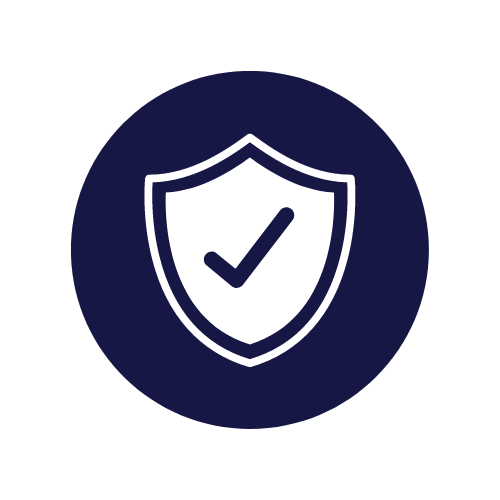Trazodone Addiction: Symptoms, Signs and Side Effects

By The Recovery Village Columbus
Last Updated: October 26, 2022
Trazodone is a commonly prescribed antidepressant. Trazodone is also prescribed off-label to treat insomnia and anxiety disorders. Although trazodone can cause mild withdrawal symptoms if taken regularly and quit suddenly, trazodone is not addictive. A number of studies have evaluated the abuse potential associated with trazodone, and have found no potential for abuse. The U.S. Food and Drug Administration has similarly identified no potential for abuse associated with trazodone.
It is important to note that trazodone is a serotonin reuptake inhibitor, as are many antidepressants. Combining drugs that increase serotonin availability can lead to serotonin syndrome, which is associated with tremors, elevated heart rate, and over-responsive reflexes. Severe serotonin syndrome can be fatal.
Signs of Trazodone Abuse
Although trazodone is not associated with risk of abuse, people who are taking trazodone experience daytime drowsiness, which may be noticeable. People who have taken trazodone regularly may experience withdrawal symptoms when they stop taking it. These symptoms could include:
- Physical Symptoms: Trazodone can cause dizziness, lightheadedness and daytime drowsiness.
- Psychological Symptoms: Trazodone is an antidepressant and anti-anxiety medication, so users often feel more upbeat and positive. People with bipolar disorder who treat depression with trazodone may experience mania/hypomania; trazodone is generally contraindicated in bipolar disorder.
Side Effects of Trazodone Abuse
Trazodone use is associated with side effects. Most people experience only mild effects, but in rare cases more serious side effects can occur with trazodone use.
- Short term Side Effects: The most common side effects of trazodone are drowsiness, dry mouth, dizziness, blurred vision and nausea/vomiting.
- Long Term Side Effects: Trazodone is generally not associated with long term side effects. In rare cases, people experience prolonged withdrawal symptoms (tiredness, insomnia) that abate within one to two months.
Trazodone Abuse Statistics
Despite being the 24th most prescribed drug in the US, trazodone is not associated with abuse. Trazodone is not included in the Center for Disease Control’s (CDC) 2018 Annual Surveillance Report of Drug-Related Risks and Outcomes, the Drug Enforcement Administration’s (DEA) 2017 Drugs of Abuse Resource Guide or 2018 National Drug Threat Assessment, the National Institute on Drug Abuse’s (NIDA) 2018 Monitoring the Future National Survey Results on Drug Use, or the Substance Abuse and Mental Health Services Administration’s (SAMHSA) 2016 Key Substance Use and Mental Health Indicators in the United States.
Trazodone Overdose
Trazodone overdoses are possible, especially when taken with other drugs. Trazodone overdoses in the presence of alcohol or other drugs can be fatal. There is no specific overdose treatment for trazodone; if you suspect an overdose call 911 or contact your local poison center by calling 1-855-980-4768.
Trazodone overdose symptoms include:
- Drowsiness and vomiting (most common)
- Priapism (prolonged, possibly painful erection)
- Changes in heartbeat
- Difficulty breathing
- Seizures
Facing Trazodone Withdrawal and Detox
It is recommended that people who are taking trazodone work with their doctor to determine an appropriate tapering dose that will wean them off slowly. Like other antidepressants, trazodone is associated with discontinuation syndrome in some people. Symptoms of discontinuation syndrome often include anxiety, agitation and sleep disturbances. In rare cases, people have experienced prolonged weariness, nausea/vomiting, trembling, headache and appetite changes that subside within a few weeks.
Overcoming substance use disorders can be challenging. If you or someone you love is struggling with drug use, call The Recovery Village Columbus to speak with one of our experts.
See More: Trazodone Treatment
Sources
- Drugs.com. “Trazodone.” Updated June 2019. Accessed August 24, 2019.
- Rush, Craig R; Baker, Robert W; Wright, Ken. “Acute behavioral effects and abuse poten[…]triazolam in humans.” Psychopharmacology, 1999. Accessed August 24, 2019.
- Griffiths, Roland R; Johnson, Matthew W. “Relative Abuse Liability of Hypnotic Dru[…]ing Among Compounds.” Journal of Clinical Psychiatry, 2005. Accessed August 24, 2019.
- FDA.gov. “Desyrel (trazodone).” Revised June 2017. Accessed August 24, 2019.
- MayoClinic.org. “Trazodone (Oral Route).” Updated August 2019. Accessed August 24, 2019.
- Drugs.com. “Trazodone Side Effects.” Updated January 2019. Accessed August 24, 2019.
- ClinCalc.com. “Trazodone Hydrochloride Drug Usage Stati[…]ates, 2006 – 2016.” Updated November 2018. Accessed August 24, 2019.
- Centers for Disease Control and Prevention. “2018 Annual Surveillance Report of Drug-[…] Risks and Outcomes.” U.S. Department of Health and Human Services, August 2018. Accessed August 24, 2019.
- Drug Enforcement Administration. “2017 Drugs of Abuse Resource Guide.” U.S. Department of Justice, 2017. Accessed August 24, 2019.
- Drug Enforcement Administration. “2018 National Drug Threat Assessment.” U.S. Department of Justice, 2017. Accessed August 24, 2019.
- Johnston, Lloyd D; Miech, Richard A; O’Malley, Patrick M; Bachman, Jerald G; Schulenberg, John E; Patrick, Megan E. “Monitoring the Future: National Survey R[…] Use, 2018 Overview.” National Institute on Drug Abuse. Ann Arbor: Institute for Social Research, University of Michigan, January 2019. Accessed August 24, 2019.
- Substance Abuse and Mental Health Services Administration. “Key substance use and mental health indi[…]Drug Use and Health.” Rockville, MD: Center for Behavioral Health Statistics and Quality. September 2017. Accessed August 24, 2019.
- MedlinePlus.gov. “Trazodone.” U.S. National Library of Medicine, revised April 2017. Accessed August 25, 2019.
- Otani, Koichi; et al. “Mechanisms of the development of trazodo[…] withdrawal symptoms.” International Clinical Psychopharmacology, 1994. Accessed August 25, 2019.

Questions?
Our Recovery Advocates are ready to answer your questions about addiction treatment and help you start your recovery.



